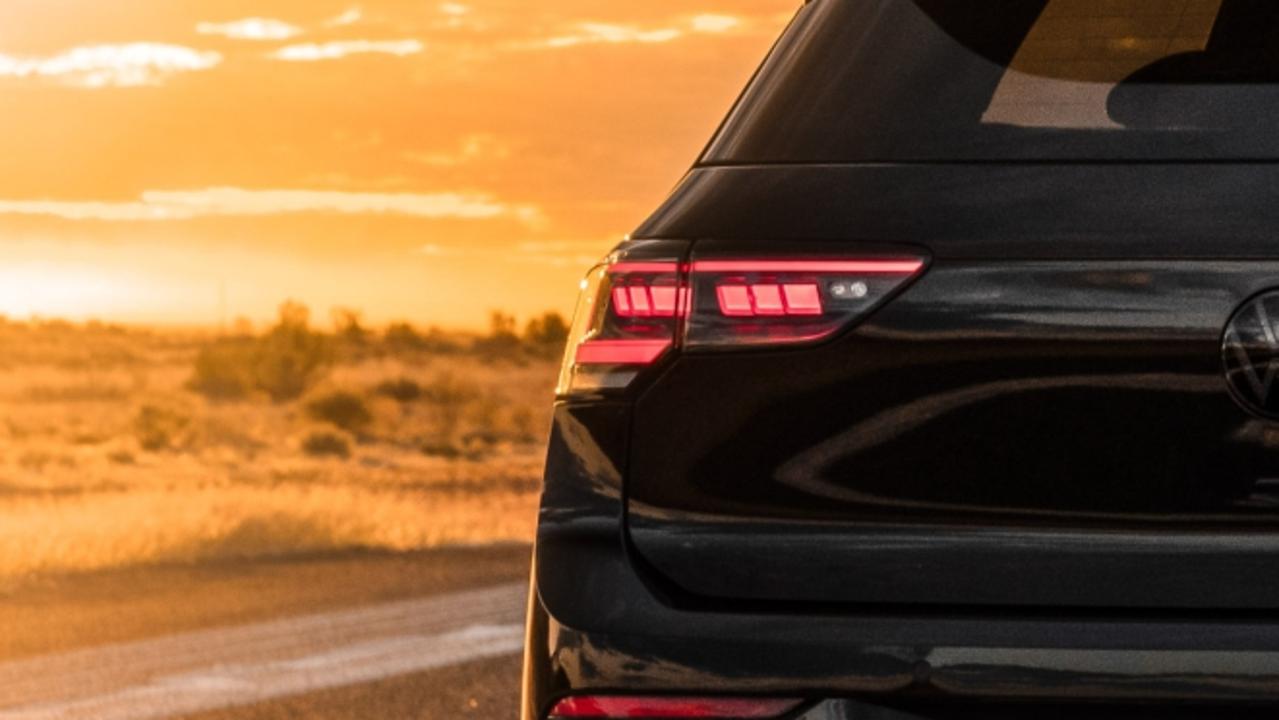2023 Toyota Corolla Hybrid new car review
No other car has found as many buyers in the past 50 years as this, and the latest version could be the smartest and most sensible yet.
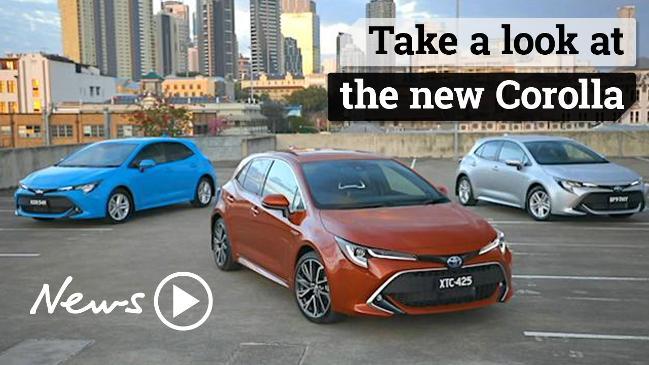
The Toyota Corolla is history’s best-selling car and the current entry-level sedan hybrid could be the smartest and most sensible model from its half-century history.
But it costs a challenging $35,000 to drive-away. Can it possibly be worth it?
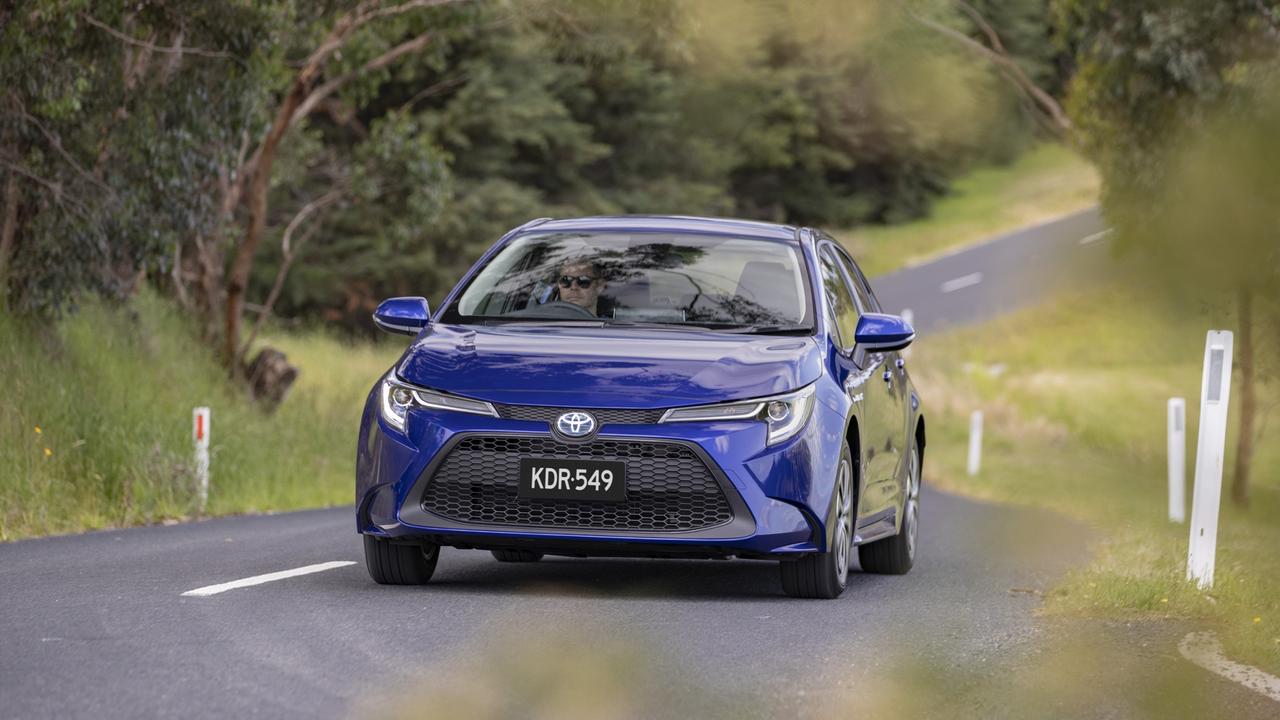
It’s the world’s most sensible car
No kid grows up dreaming of one day owning a hybrid Corolla sedan. But what this Toyota lacks in sexiness it makes up for in practicality. Its hybridised set-up returns a miserly 3.5L/100km, while Toyota’s capped price services total just $1225 for the first five years, which is ludicrously cheap.
An identically priced hatchback version wins the Corolla beauty contest, but its boot is laughably tiny.
The Captain Sensible Corolla sedan’s boot is more than twice the size, bathing in the glory of function over form.
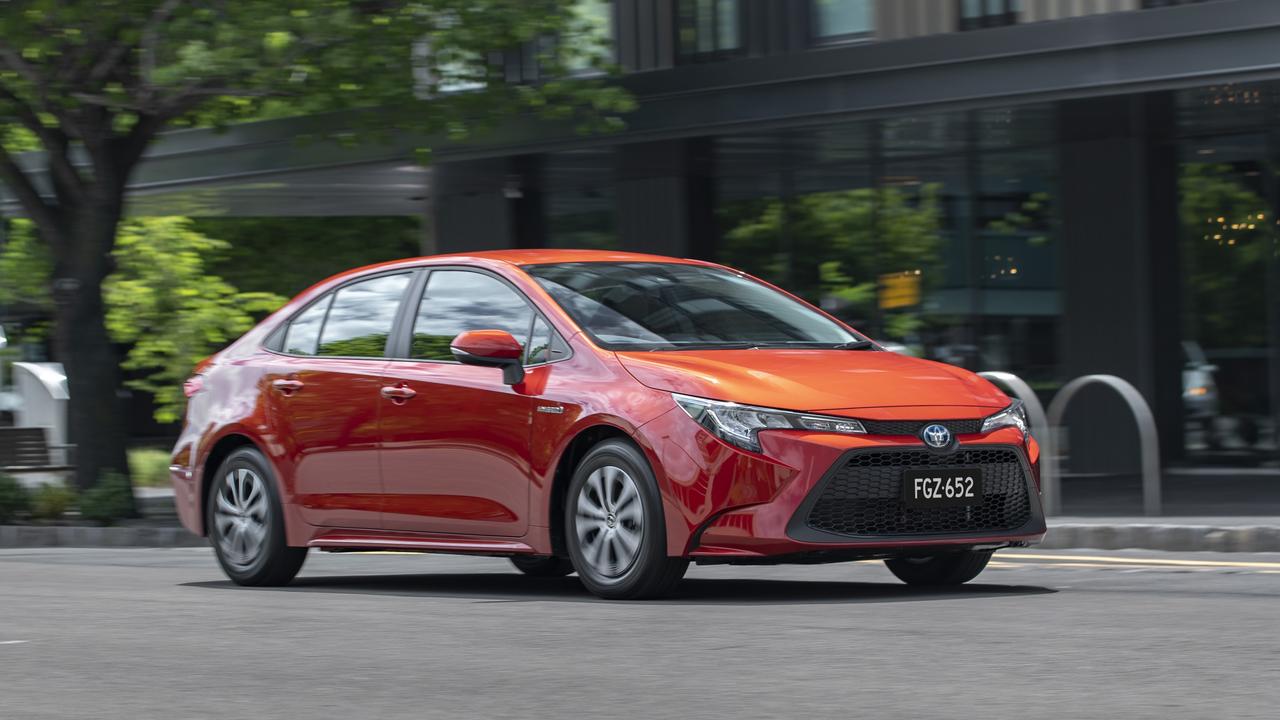
The real world fuel economy is exceptional
Why are buyers queuing more than a year for Toyota hybrids? Because they deliver on their economy promise. Order a taxi or Uber and bet your house on a blue-badged Toyota arriving.
While most conventional cars are more efficient on the highway than in bumper to bumper traffic, the Corolla hybrid uses less fuel around town than on the open road.
You can count on about 1200km range from the 43-litre fuel tank – and it only needs cheaper 91 unleaded.
Our test returned an average of 4.3L/100km, but this was often with four in the car and the airconditioning pumping. No other brand’s hybrid we’ve tested has come close.
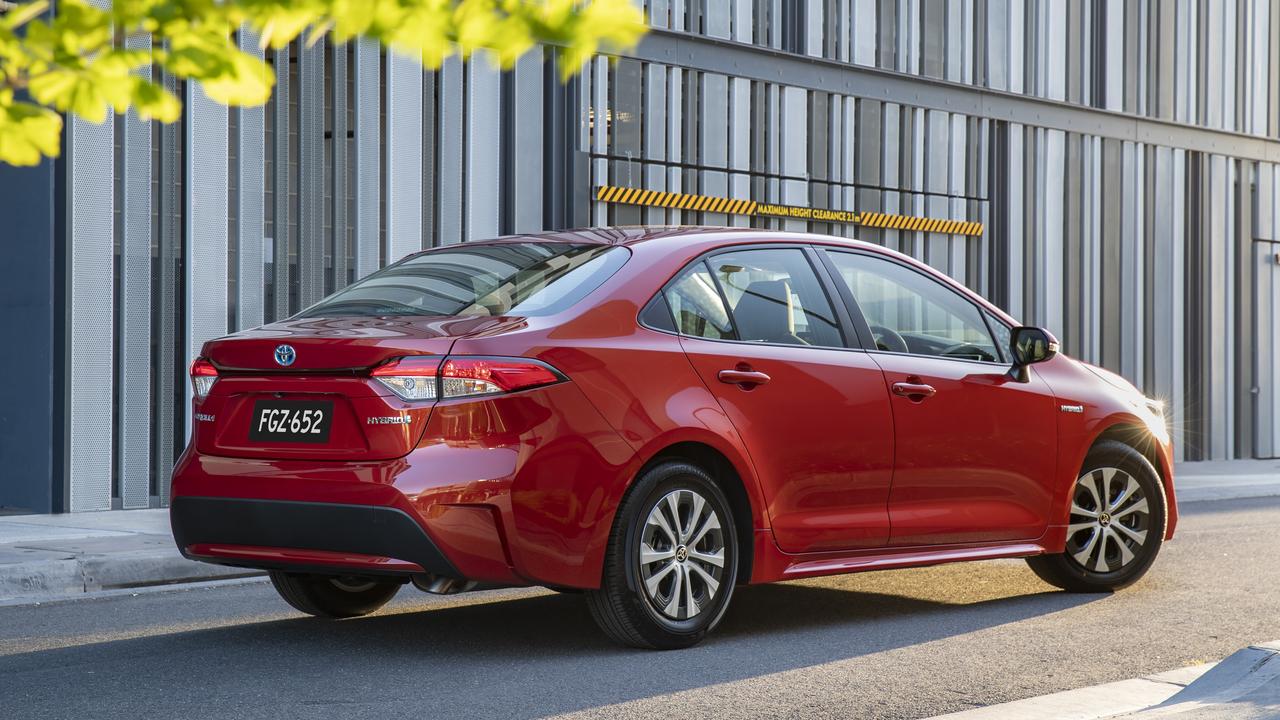
You pay for the privilege
This entry-level Ascent Sport hybrid grade was $26,335 when it launched pre-Covid.
Three years later it’s some $5000 pricier, making it a $35,000 car to drive away. And it’s another $600 if you want a colour other than rental car white (you do).
Cost increases to raw materials, shipping, labour, microchips and more are to blame, which is why practically every car’s price has rocketed. You can save $2900 buying the same Corolla without hybrid, but its fuel use is 6.0L/100km overall and 7.6L/100km in town. That’s a big difference in fuel bills, plus hybrids hold their value better.
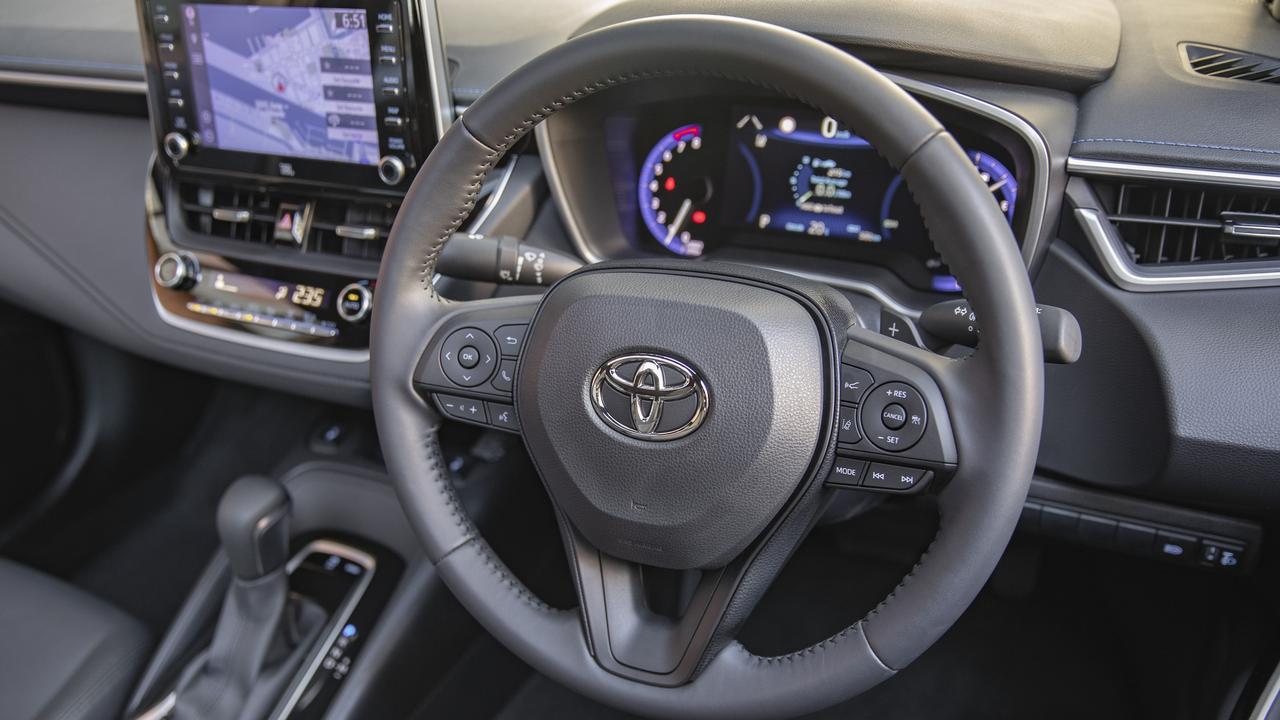
It doesn’t feel like a $35,000 car inside
You need to adjust your expectations of what a $35k small car should include.
This first-rung Corolla’s steering wheel feels too cheap and plastic, the door tops are rock hard and fabric on the (admittedly very comfy) seats is far from plush.
The cabin colour scheme is decidedly grey-on-grey and the 8-inch infotainment screen looks tacked-on, although functionality, build quality and wireless Apple CarPlay (wired Android Auto) work in its favour. Rear space is acceptable – and far better than the Corolla hatchback’s – but it’s still a bit claustrophobic and lacks air vents. At least you get LED lights, 16-inch alloys, smart entry and start, built-in satnav and climate control.
It’s safe and good to drive, especially in EV mode
Every Corolla gets a strong safety package including advanced auto emergency braking, intersection collision avoidance and radar cruise control.
This entry-level has a $1000 pack to add rear cross-traffic alert and blind-spot monitor; arguably the two most helpful driver aids. They should be standard at this price.
These hybrids can silently start and drive up to 50km/h using just the battery and electric motor.
It’s a lovely, relaxing drive and you never need plug the car in: the battery recharges itself when coasting or braking.
The 103kW 1.8-litre petrol engine combines with the electric motor to give reasonable shove, while independent rear suspension helps give a well-balanced, comfortable ride and good roadholding.
Fat eco tyres help absorb bumps but aren’t the grippiest. That shouldn’t worry owners – this is the sensible sedan after all.



